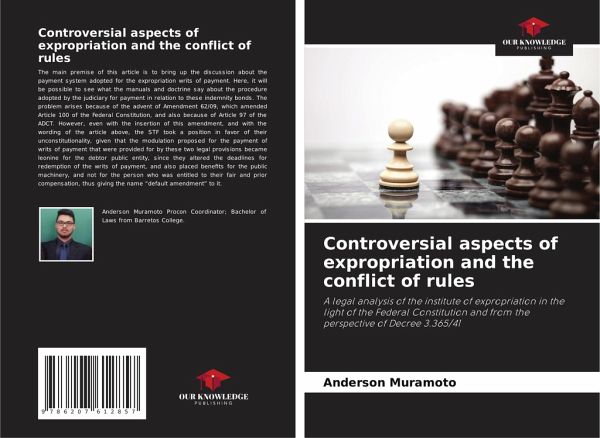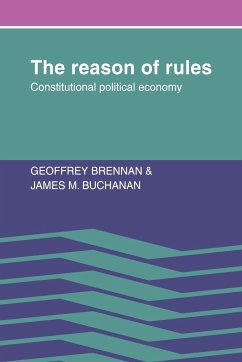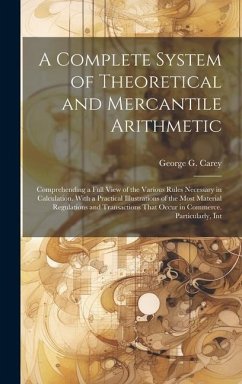
Controversial aspects of expropriation and the conflict of rules
A legal analysis of the institute of expropriation in the light of the Federal Constitution and from the perspective of Decree 3.365/41
Versandkostenfrei!
Versandfertig in 6-10 Tagen
27,99 €
inkl. MwSt.

PAYBACK Punkte
14 °P sammeln!
The main premise of this article is to bring up the discussion about the payment system adopted for the expropriation writs of payment. Here, it will be possible to see what the manuals and doctrine say about the procedure adopted by the judiciary for payment in relation to these indemnity bonds. The problem arises because of the advent of Amendment 62/09, which amended Article 100 of the Federal Constitution, and also because of Article 97 of the ADCT. However, even with the insertion of this amendment, and with the wording of the article above, the STF took a position in favor of their uncon...
The main premise of this article is to bring up the discussion about the payment system adopted for the expropriation writs of payment. Here, it will be possible to see what the manuals and doctrine say about the procedure adopted by the judiciary for payment in relation to these indemnity bonds. The problem arises because of the advent of Amendment 62/09, which amended Article 100 of the Federal Constitution, and also because of Article 97 of the ADCT. However, even with the insertion of this amendment, and with the wording of the article above, the STF took a position in favor of their unconstitutionality, given that the modulation proposed for the payment of writs of payment that were provided for by these two legal provisions became leonine for the debtor public entity, since they altered the deadlines for redemption of the writs of payment, and also placed benefits for the public machinery, and not for the person who was entitled to their fair and prior compensation, thus giving the name "default amendment" to it.














